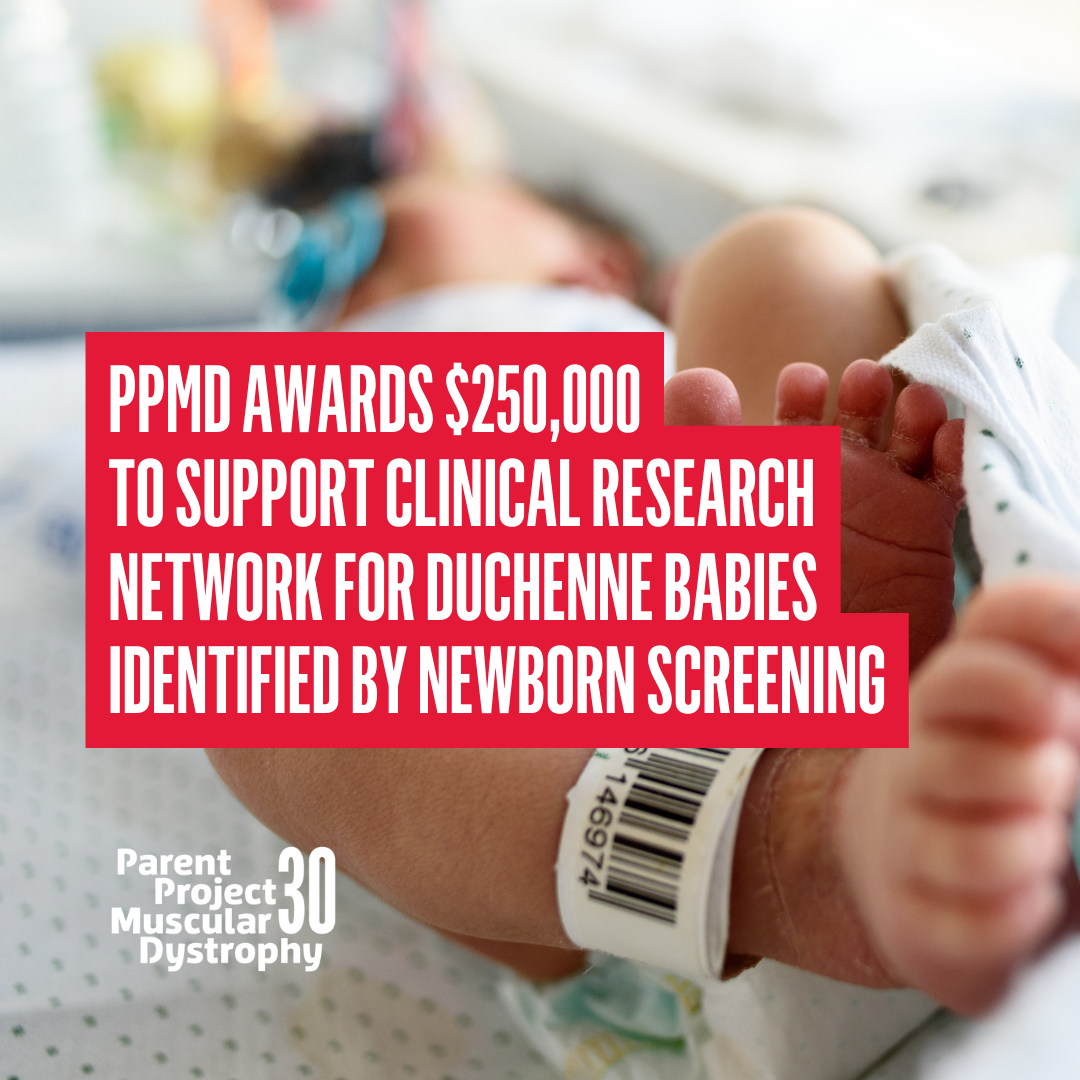
PPMD is excited to announce a $250,000 award to Bo Hoon Lee, MD, from the University of Rochester to support the development of a clinical research network for Duchenne babies identified through newborn screening efforts in New York State (NYS). The initiative aims to support newborn screening implementation efforts, inform clinical care guidelines for young patients, and lay the foundation for expansion of the network across states.
Duchenne is the most common genetic condition diagnosed in childhood, affecting approximately one in 5,000 live male births. Early diagnosis is critical for implementing timely interventions, establishing strong relationships with care teams, and exploring all available treatment options. Yet, a significant diagnostic delay results in patients not receiving a Duchenne diagnosis until reaching a mean age of 4-5 years.
For over a decade, PPMD has championed newborn screening for Duchenne, including spearheading a pilot study in NYS that took place between 2019 and 2021. The pilot study was a collaborative effort between PPMD, the New York State Newborn Screening (NYS NBS) program, Northwell Health Hospitals, New York-Presbyterian Hospitals, the National Institutes of Health (NIH)-supported Newborn Screening Translational Research Network (NBSTRN) housed at the American College of Medical Genetics and Genomics (ACMG), along with generous funders. In October 2023, New York Governor Hochul signed bill S6814/A5042, making Duchenne newborn screening mandatory for all babies born in the state.
With the anticipated start of newborn screening in NYS later this year, there is an imminent need and unique opportunity to prospectively collect natural history and clinical outcomes data in these young patients. While outcome measures and rates of progression for children over age 4 are well understood, major gaps persist in trial readiness and evidence-based clinical care guidelines for the 0- to 3-year-old group. Dr. Lee’s project, referred to as Baby Duchenne, aims to establish a collaborative clinical network and database to enroll and prospectively follow all babies identified by newborn screening in NYS with genetically confirmed Duchenne. This network will provide the much-needed early natural history of Duchenne, advance understanding of the benefits of early diagnosis to support national newborn screening efforts, and inform clinical trial design for the very young Duchenne patient population.
Dr. Lee’s team will leverage the currently established clinical network of pediatric neuromuscular centers initially designated for spinal muscular atrophy newborn screening to build a network infrastructure to capture all Duchenne diagnoses identified via newborn screening in NYS. The network will include two Certified Duchenne Care Centers in NYS, the University of Rochester Medical Center and Stony Brook Children’s Hospital, which will serve as the downstate and upstate hubs of the network. Through the development of a REDCap database of minimum core evaluations and assessments to be collected, the team aims to inform guidelines to standardize outcome measures across states implementing newborn screening over time. The ultimate goal is to establish a strong statewide network to allow expansion and inclusion of other early-screening states, such as Ohio and Minnesota, over time into the Baby Duchenne network.
Pat Furlong, PPMD’s President and CEO, emphasizes the critical significance of newborn screening and the importance of this project, stating:
“Newborn screening is vital for ensuring early diagnosis and intervention for babies with Duchenne. Dr. Lee’s Baby Duchenne project holds immense promise in supporting these newborn screening implementation efforts. By establishing a robust clinical research network and database, we aim to not only advance our understanding of Duchenne but also pave the way for more effective treatments and improved outcomes. This initiative further extends PPMD’s commitment to break down barriers related to the diagnosis, care, and treatment of every single person living with Duchenne, at all stages of life.”
Dr. Lee expresses gratitude for the funding from PPMD, stating:
“This generous support from PPMD is pivotal in our work to advance care for Duchenne babies identified through newborn screening. With this funding, we can establish a collaborative clinical research network and database, enabling us to collect vital data that will inform early care guidelines and improve outcomes for these young patients. PPMD’s investment underscores their commitment to advancing research and improving the lives of individuals with Duchenne, and we are deeply grateful for their partnership in this important endeavor.”



 by: Parent Project Muscular Dystrophy
by: Parent Project Muscular Dystrophy

